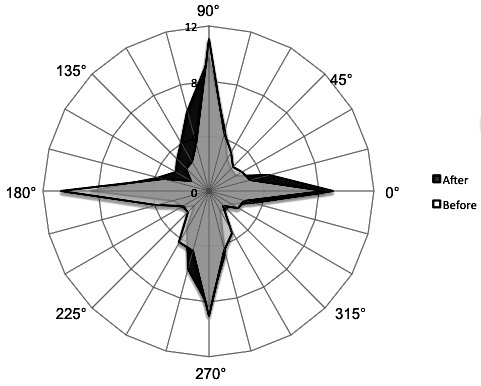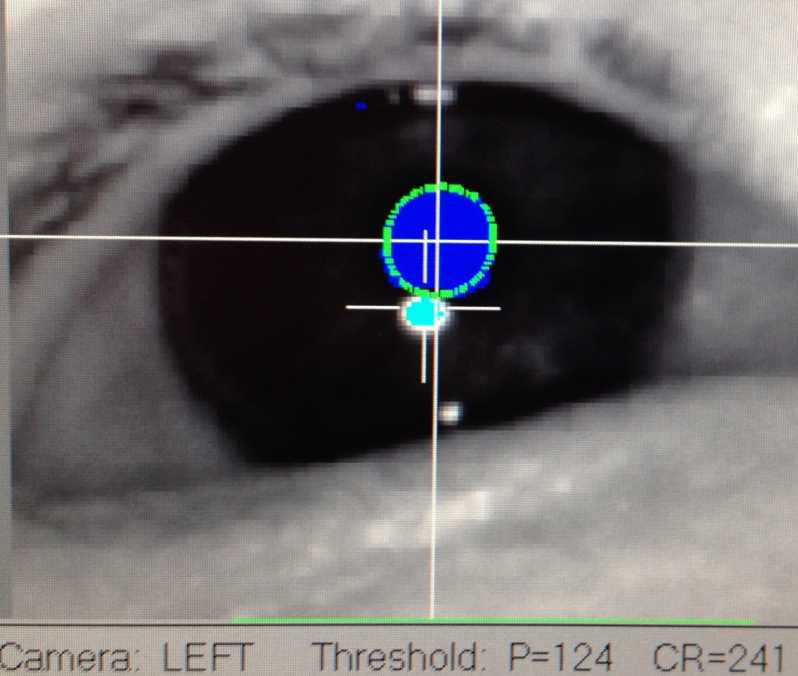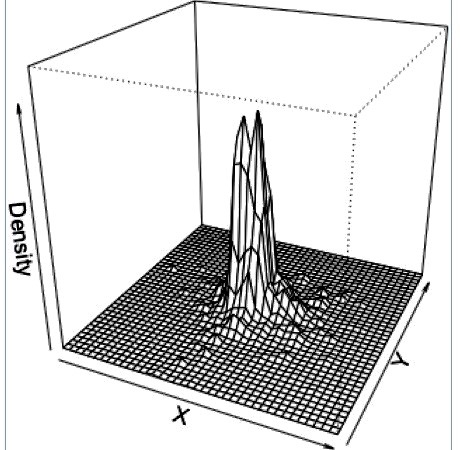Embodied Cognition
Measuring oculomotor correlates of mental looking through time
Embodied cognition stands for the relatively new finding that cognition (thought, emotion, language) is not only processed in the brain, but is also unconsciously structured by the sensory and motor system. This is not only true for concrete thought, but also for abstract thought, such as thought about time. For example: a future thought involves conceptualizing the future as moving toward the body or as the body (we) moving toward the future; mentally traveling through time involves our eyes looking along an invisible mental time line, which our eyes unconsciously project into the space in front of our body; and time is also embodied in our hands, so that for example – and this varies among different cultures – our left hand reacts faster to the past and our right hand faster to the future. Some of these forms of embodied cognition have also been found to strongly relate to emotional and clinically relevant states, such as happiness, depression, anxiety, and anger. The ETH project “embodied cognition” focuses on two main questions: What is the nature of human thoughts and emotions (how embodied are they)? And how can this knowledge be applied beneficially to psychological disorders? In a current collaboration with the University Hospital Zurich (Department of Psychiatry and Psychotherapy) and the University of Zurich (Department of Psychology, Division Neuropsychology), we investigate embodied time (embodied episodic memory, episodic future thinking, and thinking about the past, present, and future in general) in people with posttraumatic stress disorder (PTSD) – in a quest to enhance our understanding of the phenomenology and treatment of PTSD.



